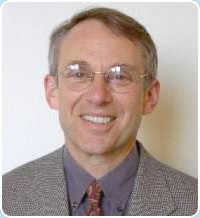By David Hoffman
 Most people know Forrest by the name “Woody,” and probably more people know him for his accomplishments as a mediator and a mediation trainer, than as a lawyer. Woody has written several books on mediation practice. He gives mediation trainings in Los Angeles, elsewhere in the U.S. and overseas. He has founded a network of mediation centers that stretches across the U.S. If you have ever met him, you can tell in 30 seconds that he has a gift for working well with people—a gift that translates into success as a mediator. He has been serving as a mediator for 30 years—he started doing this work before many of us had even heard of mediation.
Most people know Forrest by the name “Woody,” and probably more people know him for his accomplishments as a mediator and a mediation trainer, than as a lawyer. Woody has written several books on mediation practice. He gives mediation trainings in Los Angeles, elsewhere in the U.S. and overseas. He has founded a network of mediation centers that stretches across the U.S. If you have ever met him, you can tell in 30 seconds that he has a gift for working well with people—a gift that translates into success as a mediator. He has been serving as a mediator for 30 years—he started doing this work before many of us had even heard of mediation.
Woody is receiving this award today because, in addition to his good work and leadership in mediation, he has made equally important contributions to the practice of law. Woody has been a lawyer for 32 years. I have done the math, and, to look at him, you would have to guess that he started practicing law at the age of 13, perhaps right after his bar mitzvah.
Woody was an original partner in Jacoby and Meyers, the first private legal clinic in the U.S., in 1972, and so he started his legal career on the cutting edge of legal services delivery. Woody also served as a professor of law and director of clinical legal education at Mercer Law. In short, he knows the practice of law from working, and directing the work of others, on the front lines, and developing creative ideas for delivering legal services to people of moderate means. He has that rare combination of idealism and realism that makes him effective at promoting positive social change.
Woody pioneered the concept and practice of “unbundling” legal services. In 1993 he gave a keynote address to lawyers in Australia in which he introduced the concept. He has further refined it and written about it, in the book “Unbundling Legal Services: A Guide to Delivering Legal Services a la Carte,” published by the American Bar Association in 2000. Woody has also published numerous articles about unbundling in a variety of law journals.
What is “unbundling”? It means, very simply, offering clients the option of hiring counsel to do only those tasks that the client needs. Clients who use 'unbundled' legal services may be seeking only one of the following: advice, research, drafting, negotiation, review of contracts or agreements, or a limited court appearance—or some combination of these services.
Unbundling is a conceptual breakthrough that has paved the way for lawyers to serve in a variety of roles that support the dispute resolution process, such as ‘settlement counsel' or ‘collaborative law' counsel. In addition, the use of unbundling plays an important role in making legal services more affordable and more accessible, such as the use of “pro se clinics” which were in use when I was in law school and working in a legal services clinic in Boston.
If you look at the web site that discusses ‘unbundling,' you will see that it is Legal Services offices that have taken this ball and run with it. But I will also tell you that as a work-a-day lawyer and mediator, I am using Woody's concepts in my practice every single day. As you can tell, Woody is one of my heroes in this field.
In his law practice, Woody has also been a pioneer in another important but largely unheralded area: the creation of client libraries. Woody's law and mediation office includes a library for the use of clients and the public, with videotapes, books, and informational booklets on the subjects of family law and mediation. (A photograph of the library is available at his web site.) By creating such a library, Woody is communicating an important message to clients and potential clients—namely, that one of the purposes of legal representation is to empower people. By doing so, Woody has addressed yet another major problem in legal representation: how can lawyers make sure that their clients are making informed choices. By giving his clients the means to educate themselves, Woody has furnished them with an important tool for their empowerment.
Woody is one of those rare individuals with enough energy and vision to fuel several careers. I believe that the legal profession will look back at the end of this century and will view, among the landmark developments, the concept of unbundling as one of the significant advances in the practice of law and a significant breakthrough in helping lawyers become more effective as problem solvers in our society.
On a personal note, I want to say how much I appreciate Woody as a friend and as a friend of the field of dispute resolution. He is one of those wonderful people who rejoices in the accomplishments of others, wants to see all of his colleagues prosper, and holds the door open for others. His life's work is to make the world a better place, and he is doing a great job of it.
Woody is a most deserving recipient of the Section's “Lawyer as Problem Solver Award.”